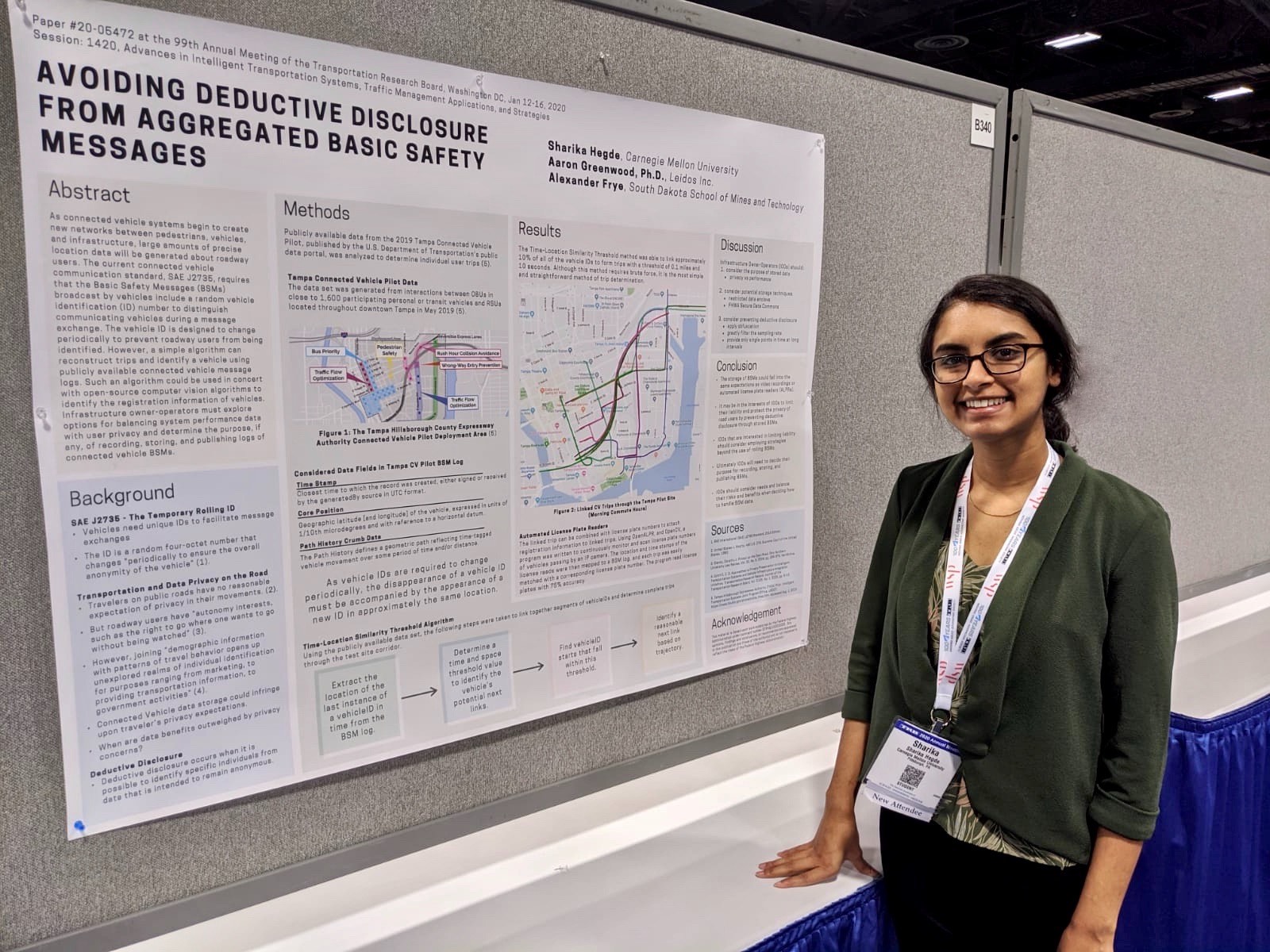
Hegde Presents Data Privacy Paper at 2020 TRB Conference
CEE senior Sharika Hegde’s 2019 summer internship at the Federal Highway Administration’s Saxton Transportation Operations Laboratory not only allowed her to work with connected and automated vehicles—it sparked her interest in the data privacy implications of connected vehicle data logs.
This led to a research paper focused on vulnerabilities within the existing connected vehicle communication standard created by the Society of Automotive Engineers, SAE J2735. Hegde developed an algorithm that pieces together snippets of vehicle location data to understand the trajectory of various system users. “That information poses a huge security threat that infrastructure owner-operators must consider when deciding what to do with connected vehicle data logs,” she states. “Are privacy concerns outweighed by the benefits of high-quality data?”
Connected vehicles are constantly creating new networks between pedestrians, vehicles, and infrastructure that result in large amounts of precise location data. According to the SAE J2735 standard, these vehicles utilize a periodically-changing random vehicle identification number to communicate and exchange messages. Hegde’s algorithm exploits these identification numbers to reconstruct a vehicle’s trips through publicly-available connected vehicle message logs, exposing potential location-based privacy issues for the car’s users.
Hegde presented the paper at the 2020 Transportation Research Board conference in Washington D.C.—an exciting experience as she closed out her undergraduate studies. “As an undergrad, I was thrilled for my paper to be selected, as this was my very first paper. The conference really introduced me to the breadth and depth of the transportation field.”
She adds that the response to her poster presentation was positive and gratifying—especially from individuals within state and local infrastructure who are familiar with connected vehicle communication standards.
CEE’s interdisciplinary and data-driven coursework—especially Professor Sean Qian’s Smart Cities class—helped to prepare Hegde for the research and presentation. “I learned how to consider problems from not only a civil engineering perspective, but also through the lens of emerging technology. In this case, I was able to point out data privacy considerations that others in the field should also consider,” she states.
Hegde plans to continue her studies in the transportation field as she pursues a Ph.D. in Transportation Systems starting in fall 2020. “I want to continue to be in the research space, working on similar projects in the transportation domain throughout my career.”